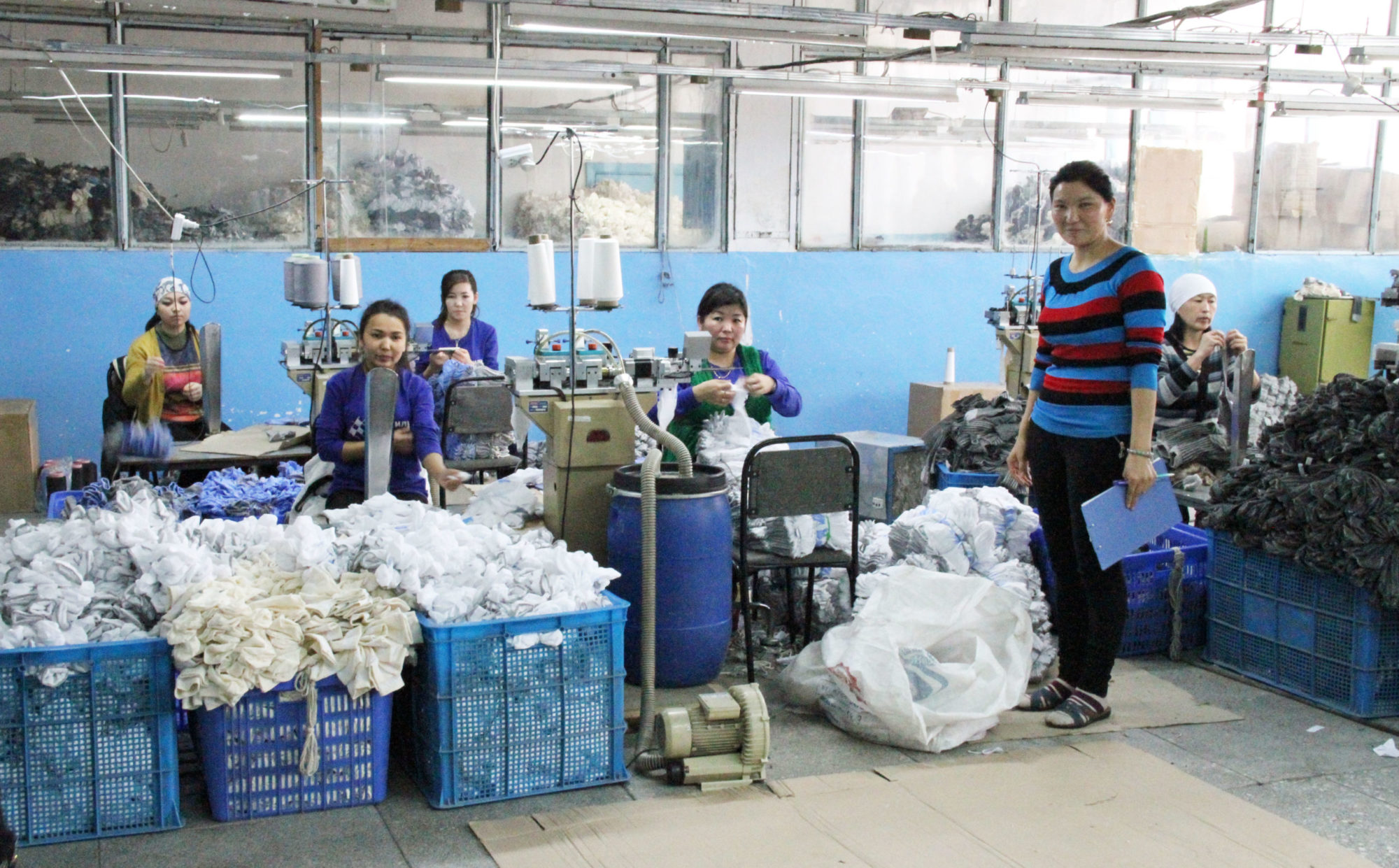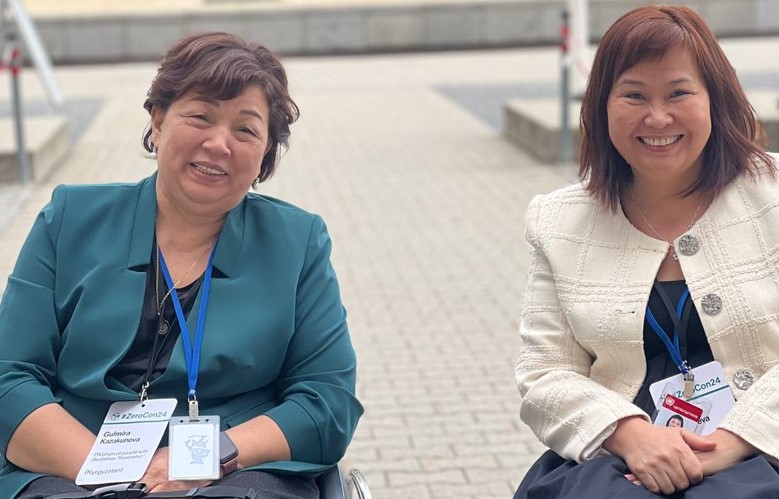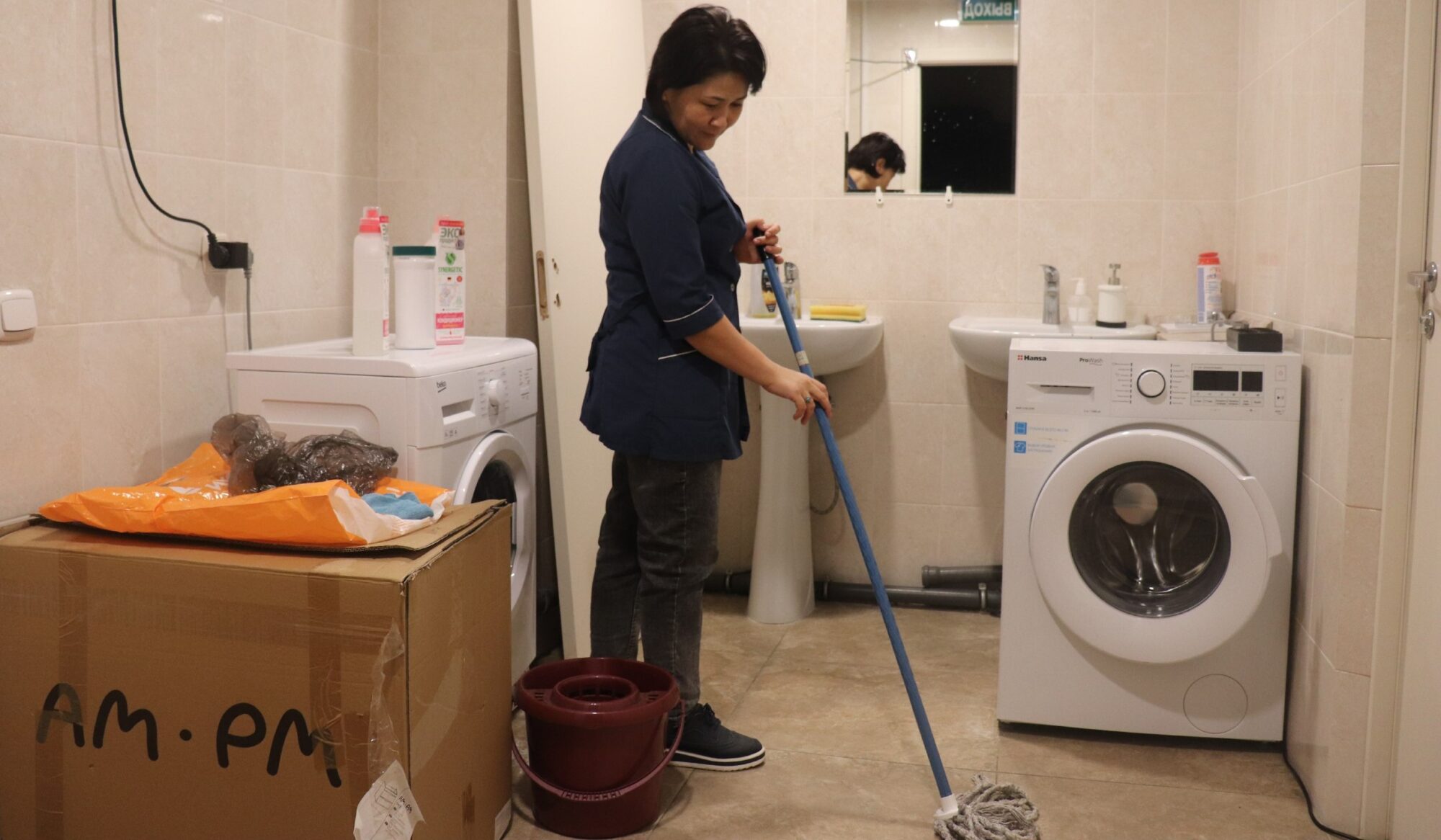More than 1 billion people, or 16 percent of the world’s population, experience a significant disability, and 80 percent to 90 percent of working age people with disabilities are unemployed in developing countries. People with disabilities are more likely to...

The Solidarity Center aims to strengthen union representation in Kyrgyzstan to protect workplace safety and health for workers such as those in textile factories. Credit: Solidarity Center/Lola Abdukadyrova
In Kyrgyzstan, the Solidarity Center aims to strengthen union representation to protect workplace safety and health and increase public awareness about international core labor standards, and works to secure protections for Kyrgyz workers who migrate for jobs.
The Solidarity Center, in cooperation with a local labor research organization, launched a worker rights hotline to take complaints about labor law violations, including cases reported by persons with disabilities and migrant workers. The hotline provides free consultations and referrals to workers.
When workers migrate from Kyrgyzstan, they often face discrimination, exploitation and unsafe working conditions. Many are at risk of being trafficked and subjected to forced labor. The Solidarity Center helps organize pre-departure training for migrants preparing to leave Kyrgyzstan to ensure they are aware of their legal rights and the conditions they may encounter, develop and disseminate the information materials on safe migration and provides contact information should they encounter problems abroad.
Kyrgyz App-Based Drivers Win First Agreement with Employer
App-based drivers in Osh, Kyrgyzstan, achieved a historic milestone by negotiating a first collective bargaining agreement with a leading platform-based transportation company, Osh Taxi. The September 29 pact, negotiated by the Kabylan union, extends beyond union...
Pandemic a ‘Cruel Joke’ Say Migrant Kyrgyz Women Working in Russia
Women and workers from marginalized communities suffered disproportionately from the impact of the COVID-19 pandemic and a new survey details the effects on Kyrgyz migrant workers in Russia. The survey of almost 300 Kyrgyz women who are dependent on precarious,...



